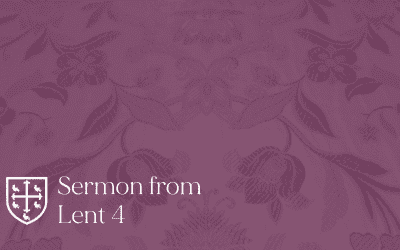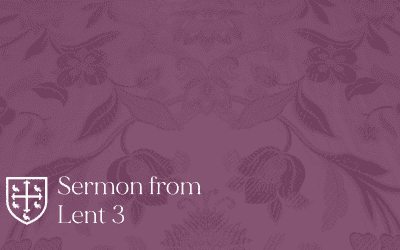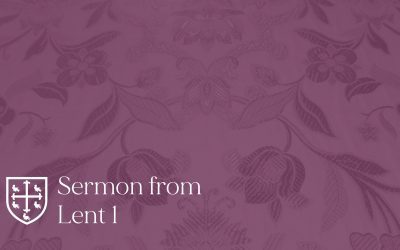Proper 21 Year C 9/25/2022
Amos 6:1a, 4-7; Psalm 146; 1 Timothy 6:6-19; Luke 16:19-31
Rev. Mark A. Lafler
Last week and this week our first readings…
Our first lessons…
Come from the Old Testament book of Amos.
Amos was an 8th century BC prophet to the Northern Kingdom of Israel.
It is a small book of the Bible – 9 chapters in total…
One of the so called: Minor Prophets.
Unless we have been intentional in studying the book of Amos,
it is usually one of those books of the Bible that the majority of us probably know very little about.
Amos spoke the words of God during a time of prosperity and relative peace for both the Northern Kingdom of Israel and the Southern Kingdom of Judah.
The people awaited the “day of the Lord” thinking that at some soon moment in time God would come back and set the world under the rule of God’s people.
Business was booming…
Wealth was being amassed…
People were living it up with leisure and merriment…
Religious worship was well attended…
The people thought all of this pointed toward the blessing of God.
Never mind the sexual indulgence,
the exploitation of the poor,
the treatment of other nations,
the commercial practices of injustice…
Those things were overlooked because life was so good!
It was to these times that Amos spoke the words of God.
We often may think of the Old Testament prophets speaking against the nations of the world in favor of Israel…
But Amos spent most of his prophetic oracles challenging the sinful ways of his own people…
The chosen people.
The people of God.
The assertion of the day was that privilege brought security.
Amos declared that privilege is bringing peril and danger.
You see, much of Israel’s wealth had been amassed at the expense of the poor, whom the rich and powerful were systematically oppressing.
And when the poor could not contribute to society…
To the betterment of the rich…
They were simply ignored…
They were left to rot.
Amos spoke out against this evil…
especially in its institutionalized forms.
The ways that the rich exploited the poor.
This can be seen in our reading today from Amos.
Listen again to our reading from The Message paraphrase:
Woe to those who live in luxury
and expect everyone else to serve them!
Woe to those who live only for today,
indifferent to the fate of others!
Woe to the playboys, the playgirls,
who think life is a party held just for them!
Woe to those addicted to feeling good—life without pain!
those obsessed with looking good—life without wrinkles!
They could not care less
about their country going to ruin.
Israel went from thinking they were going to rule the world…
They were God’s people…
And God was surely blessing them!
To within a few short years of not even existing as a nation.
While the Israelites worshipped and pronounced that they were entering a golden age…
Amos stepped up and said in fact,
they were facing great judgment and ruin because of their lack of care of people and other nations.
The “day of the Lord” that they so desired as a time of triumph for their wealth and lifestyle proved to be a day of darkness.[1]
Amos prophesied around the time of 750 BC…
Israel (the Northern Kingdom) was sacked and destroyed by the Assyrians in 722 BC.
Within two to three decades of the prophetic oracles of Amos…
There was no more Northern Kingdom…
God cares very deeply about justice…
He cares very deeply about our treatment of others.
We live in a society where getting ahead is widely considered to be an essential part of what it means to be human.[2]
This fallacy is broadcasted in every medium…
Consumerism, wealth, and leisure are the gods of our culture.
Yet God calls us to a cruciform life…
A life shaped by the sacrificial life of the cross…
Our society in general wants very little to do with any hint of that notion.
The true sign of our righteousness with God is how we treat other people.
This is why the summary of the law is to love God and to love our neighbors.
Religious ritual and worship in the absence of justice and righteous treatment of others is as Amos would say “disgusting to God.”
The people of God are always held on a higher level of accountability when it comes to how others are treated.
And for us…
As the people of God…
The church…
Our primary worship to God is not music or words…
It is not the litany of prayers or the silver-tongued sermons…
It is through the way we treat other people…
There is only one thing in this world that is made in the image of God.
People.
Humans…
In all the different personalities, colors, and ethnicities…
People are in the image of God.
How we treat each image bearer is the greatest showcase of our faith in Christ Jesus.
Destruction came to Israel…
But even in the midst of judgment…
In the midst of the justice of God…
A remnant would go forth…
The hope of an heir of David was still there.
A forever King who would set all things at right.
And we know this person to be Jesus Christ.
Who came, lived, and died for all of humanity.
So that all would be invited to be with our Creator God for ever.
God cares very deeply about sin.
God cares deeply about justice.
And God is also a God of love and mercy.
As our collect reminded us so well today:
O God, you declare your almighty power chiefly in showing mercy and pity…
Think about that…
The principal way that God declares his almighty power is in showing mercy.
We don’t always think of power in those terms.
Power in our world is often shown as force…
Or as resistance…
Power is manipulative…
Stubborn…
Aggressive…
Violent.
But our prayer declares that the power of God is chiefly displayed in his mercy.
Ultimately and primarily, that is pointing toward the power of God in the mercy of the cross of our Lord Jesus.
Who gave his life for us…
While we were still sinners…
Christ died for us.
(Romans 5.8)
Knowing the hearts of all humanity…
The secret sins and thoughts we all have…
Nothing is hidden from his sight…
And yet he shows us mercy by dying for us…
Tortured and beaten for us…
As the prophet Isaiah declared (53.5-6):
…he was pierced for our transgressions,
he was crushed for our iniquities;
the punishment that brought us peace was on him,
and by his wounds we are healed.
We all, like sheep, have gone astray,
each of us has turned to our own way;
and the Lord has laid on him
the iniquity of us all.
His mercy toward us is the display of his power.
Now before I wrap up this sermon, I want to look at one last thing about this book of Amos…
More specifically, the person…
The prophet Amos.
Who was Amos?
We know very little about him.
He doesn’t show up in other parts of scripture.
He is kind of a mystery man.
But he does tell just a hint of his story in his book.
The first words of the prophet are this:
The words of Amos, one of the shepherds of Tekoa…
(Amos 1.1)
Amos identifies himself not as a prophet or a man of God…
But as a shepherd.
We find out a smidge more about him in the seventh chapter…
When the prophet wrote:
Amos answered Amaziah, “I was neither a prophet nor the son of a prophet, but I was a shepherd,
and I also took care of sycamore-fig trees.
But the Lord took me from tending the flock and said to me,
‘Go, prophesy to my people Israel.’
(Amos 7.14-15)
Amos did not come from a line of prophets…
He did not come from priests or royalty.
He was a lowly shepherd…
Who also took care of fig trees.
In other words, he was a regular person…
Not a person of cultural or societal importance.
I want to encourage you…
That just as God called Amos…
Who was probably minding his business while working in the fields…
He is also calling you…
He calls all of us…
To speak up to the injustices in our world.
To speak up about the immoral practices in our world.
To proclaim the goodness and mercy of God.
And to point toward Jesus Christ…
Who is the way, the truth, and the life…
May we hear the call of God, just as Amos did…
And may we answer that call…
Sharing the good news of Jesus Christ in this world.
Amen.
[1] ESV Study Bible (Wheaton: Crossway, 2008), 1655-1658.
[2] Gordon D. Fee, Offer Yourselves to God (Eugene: Cascade Books, 2019), 76.




